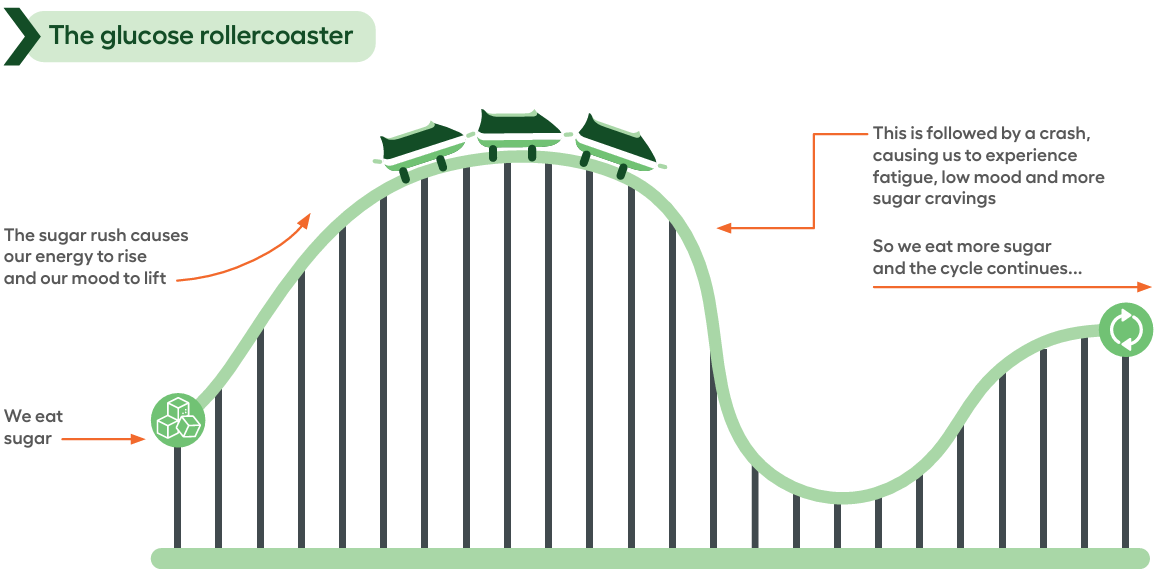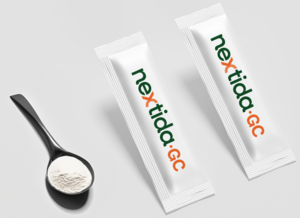
‘Metabolic health refers to how well the body manages processes like energy production, blood sugar, cholesterol, triglycerides, and body fat. Based on these indicators, most people in North America have poor metabolic health. And as the Western diet and lifestyle — characterized by a diet high in processed foods and a sedentary lifestyle — has spread globally, the problem is growing worldwide.’
‘Glucose management is extremely important for long-term health. Even in people without metabolic disorders, maintaining balanced blood sugar levels is crucial. It leads to better energy levels during the day and prevents energy spikes or crashes that can lead to fatigue and irritability. It is also important for weight management, as better glucose control helps overall metabolism and reduces overeating. There is also an improvement in mood and cognitive function.
Making the right choices around diet, exercise, and lifestyle can help maintain stable glucose levels and promote long-term health.

Dr. Michael Murray is a leading expert in natural medicine with over 40 years of experience in the field. Known for his work on the power of natural remedies, he focuses on the role of diet and lifestyle choices in maintaining health. Dr. Murray has co-authored more than 40 books, including the essential reference texts The Textbook of Natural Medicine and The Encyclopedia of Natural Medicine.

How are consumers reacting to this metabolic health epidemic?
‘Poor metabolic health is a reflection, primarily, of dietary and lifestyle choices. And most consumers are unwilling or unable to change their choices in order to achieve metabolic health. They want quick, easy, and convenient results. And this often leads them down the path of fad diets, weight loss drugs, or surgery.’
What glucose management trends are we seeing today
‘One of the biggest trends in glucose management is the increasing use of GLP-1 agonists, including both drugs and dietary supplements. GLP-1 is a naturally occurring hormone-like compound released by our intestinal cells in response to food components as well as intestinal microbes. GLP-1 helps our bodies regulate blood sugar levels, fat metabolism, appetite, the body’s response to insulin, and sensation of being full.
‘We are also seeing a rise in lifestyle trends, such as continuous glucose monitoring technology (CGMs) and more personalized approaches to metabolic health.’

‘As a naturopathic physician, my philosophy is to address health issues by focusing on the root cause. The best solution, in my opinion, for addressing the multitude of issues that poor metabolic health produces is to focus on diet, lifestyle, and the proper use of dietary supplements to support and improve the body’s metabolic functions.
‘This primarily means improving the action of the hormone insulin. Such a strategy involves utilizing a low glycemic load diet by eliminating foods that quickly raise blood glucose levels, like refined sugars and high-glycemic foods. This strategy is critical as it is well-established that a diet high in refined carbohydrates and low in dietary fiber is the most important contributing factor to poor glucose management and insulin resistance.’
‘What frustrates me most about the supplement market is a marketing issue. While there are scientifically valid, clinically proven natural products that can help people improve metabolic health, unfortunately, these products are not as popular as those with little science behind them that are heavily marketed.
‘Fortunately, the rising popularity of GLP-1 is making consumers more aware of natural products that have confirmed effects on glucose management. This includes highly viscous dietary fiber supplements, berberine, products containing heat-killed Akkermansia muciniphila, and, most recently, specific collagen peptides compositions.’

‘Recent research with a specific collagen peptide composition developed by Rousselot under the name Nextida GC provides an interesting new approach. In the first clinical trial, supplementation with 5 or 10 grams of Nextida GC significantly lowered post-meal blood glucose spikes. This potentially offers individuals a natural way to manage blood sugar spikes. During product development, a preclinical study demonstrated that Nextida GC boosts GLP-1 secretion.’
‘I think there are several reasons. Most importantly is that it is a more natural approach that is inherently safer and can also produce results. With metabolic health, there are objective measures that consumers can use to measure success such as continuous glucose monitoring, A1C levels, body fat percentage, and, of course, body weight. In the dietary supplement industry, ultimately, it is the results that consumers achieve that drives widespread use and grows the marketplace.
‘I would encourage manufacturers of dietary supplements to select ingredients that produce results. For an ingredient like Nextida GC, I think it helps that many consumers, certainly in North America, are already familiar with collagen peptides and the multiple benefits they can provide, particularly for skin and joint health. With Nextida GC, manufacturers can introduce the next generation of collagen peptides that target specific health benefits, such as glucose management, that go beyond the known benefits for skin and joint health. This helps manufacturers reach an even wider audience, and the consumer benefits too by getting the results they are seeking.
Keep up with Dr. Murray on Instagram, @dr.michaelmurray, and his website
This presentation refers to market and/or research data in general and does not imply any direct link between the subjects mentioned and Rousselot’s products.
